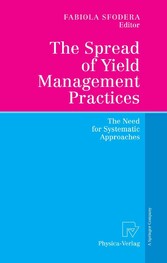Search and Find
Service
Revenue management in the restaurant sector (S.101)
Charlotte R. Rassing
Institut for Konjunktur Analyse
Aaberaa 29
1124 Copenhagen
Denmark
Contents: 1 Background information. U Purpose and composition of the paper. 2 Introduction. 3 Literature review. 4 Implications for the use of revenue management. 5 Complexity of pricing in the restaurant sector. 6 Menu analysis. 7 Empirical study to be undertaken. References. Appendix. Questionnaire.
1 Background information
The beginning of 2000 a new tourism research centre in Denmark was founded Centre without walls (Center uden mure} The centre is a consortium of Roskilde University, Copenhagen, Business School (institute for management, politics and philosophy) and the Research Centre of Bomholm. The research program that has to take place during the next tliree years is partly founded by the Danish Social Science Research Council.
As part of this program a Ph.D. study at the Research Centi'e of Bomliolm has been offered under the title Revenue Management in the Restaurant Sector. The Ph.D. student will be registered in Bournemouth University, UK, but the daily work will take place at the Research centre of Bornliolm, Denmark.
The objectives of the Ph.D. project is (1) to extend the theory of revenue management into the area of food and beverage operations, so as to product new processes in pricing, menu analysis and budgeting, and (2) to work with HORESTA (the Danish Hotels, Restaurant and Tourist Businesses Association) and selected restaurants in Bomholm to develop applications which have immediate practical returns to the sector.
1.1 Purpose and composition of the paper
The puipose of this paper is to introduce the reader to the Ph. D research that has to be undertaken at the Research centre of Bornholm within the next tluee years. The first part of the paper will take a closer look at what literature already exists about revenue management and what has to be done to apply the theory to the restaurant sector.
In the second part of the paper the empirical research to be undertaken will be briefly presented both the ideas and the expected output. It is important to point out that the Ph. D project is still at its very beginning. Therefore most of this paper will deal with already existing research and ideas to research in the future.
2 Introduction
Within the food and beverages industry revenue management is defined by Farell, K. and Whelan-lyan, F. (1998) as "the allocation of fixed capacity to various segmented markets in such a way as to meet customer requirements and to provide maximum returns on available capacity by the application of discriminatory pricing".
Revenue management includes all kinds of price discrimination that can be used to maximise the revenue when the capacity is fixed (HOREST A, 1999} The theory was developed, coined for and refined by the airline industry following airline deregulation in the 1970s. Today the technique is widely accepted and extensively used tliroughout the world, mainly among large hotels (Baum, T and Mudambi, R., 1998, p. 68) but also among large cruise liners, tour operators, and car rental companies.
All prices incl. VAT













